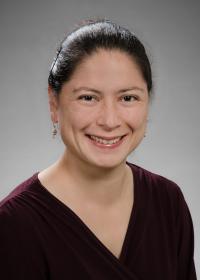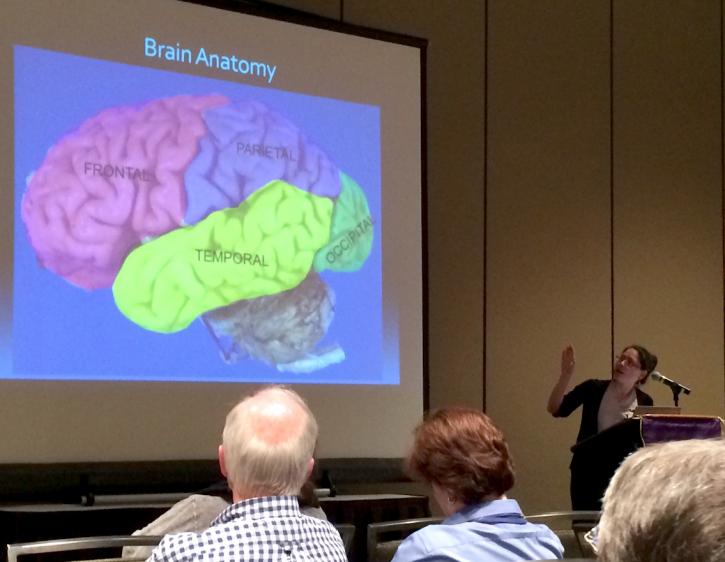DISCOVERY 2018 CONFERENCE PREVIEW – WORKSHOP: FRONTOTEMPORAL DEMENTIA: WHAT’S IT ALL ABOUT?
By Genevieve Wanucha, as posted by the Alzheimer's Association WA Chapter
It’s a fact that many families know well: Not all dementia is Alzheimer’s disease. In Frontotemporal Dementia: What’s It All About?, Kimiko Domoto-Reilly, MD, a neurologist and FTD expert at the UW Memory and Brain Wellness Center, will demystify a lesser known brain disease that can affect the temporal and frontal lobes of the brain. Like Alzheimer’s disease, FTD leads to dementia, but the disease often first affects a person’s language and/or social behavior.

Kimiko Domoto-Reilly
The terminology of the different variants of FTD can be confusing to both families and clinicians, so Dr. Domoto-Reilly will give a tour of the main variants: primary progressive aphasia (PPA), which impacts language comprehension or speech, and behavioral variant frontotemporal dementia (bvFTD). Families dealing with bvFTD can face unique challenges in managing a loved one’s changing behavior, odd decisions, or inappropriateness in social situations.
Because FTD often onsets in the 50s or 60s, well before retirement and Medicare eligibility, care partners and families all ask, ‘What now?’ Dr. Domoto-Reilly can provide insight on genetic risk, symptom progression, medications, and what FTD treatment will look like in the future. She will also highlight ways to connect with the Association for Frontotemporal Degeneration, a rich source of information and support groups for people living with FTD, care partners, and young adult children of parents with FTD.
As the leader of FTD research initiatives and studies at the UW, Dr. Domoto-Reilly will report on the search for potential therapeutics and new medical technologies. She is also the UW site PI of a national effort to build a FTD clinical research network to support treatment and effective clinical trials that focus on the prevention. From this wide base of knowledge, Dr. Domoto-Reilly will be able to describe special research opportunities for people at a high genetic risk of FTD.
This workshop is recommended for care partners, clinicians, and anyone who has an interest in non-Alzheimer’s or atypical dementias. Participants should come away with useful information, greater awareness of FTD, and a sense of hope.
Registration for Discovery 2018 closes Wednesday, April 18. Register today!





